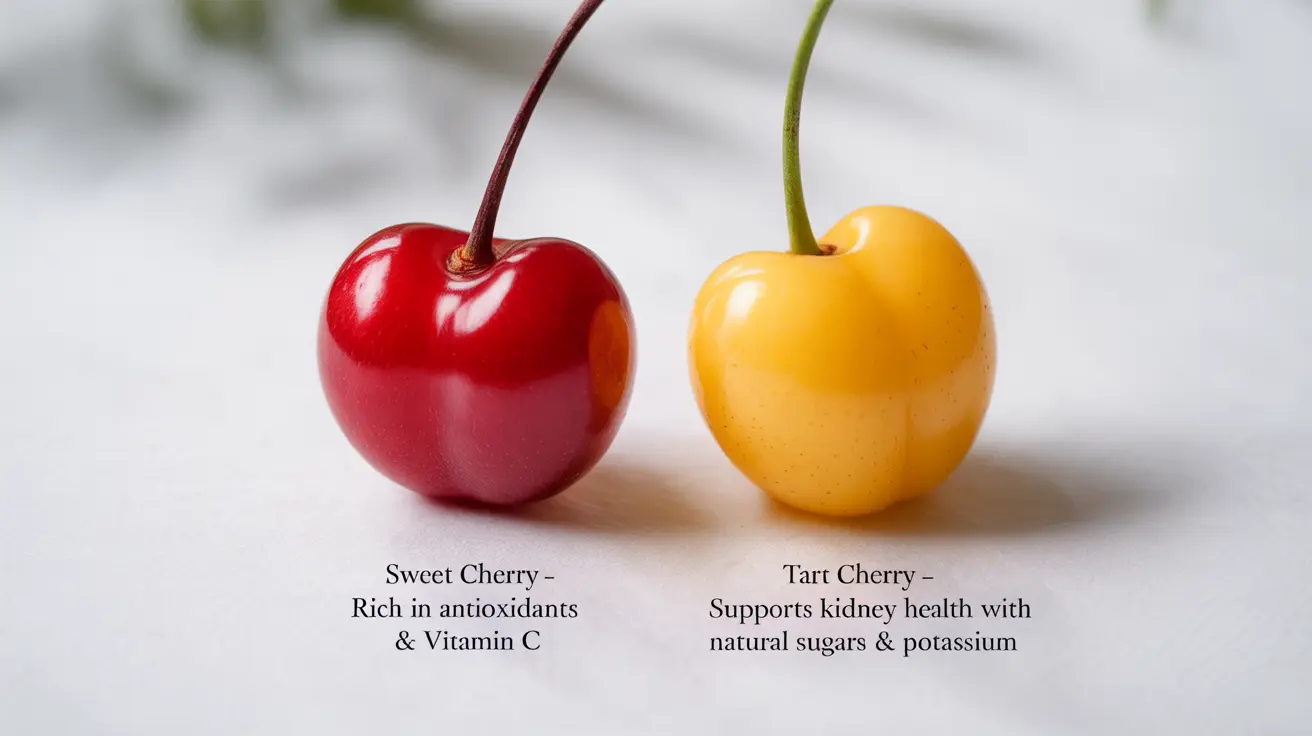If you're living with kidney disease or diabetes, making informed dietary choices is crucial for maintaining your health. Cherries, both sweet and tart varieties, have gained attention for their potential health benefits, but it's important to understand how they may affect kidney function and whether they're safe for your specific condition.
In this comprehensive guide, we'll explore the relationship between cherries and kidney health, examining their nutritional content, potential benefits, and considerations for people with kidney disease or diabetes.
Understanding Cherry Varieties and Their Nutritional Profile
There are two main types of cherries commonly consumed: sweet cherries (Prunus avium) and tart/sour cherries (Prunus cerasus). Each variety has a distinct nutritional profile that can affect their suitability for people with kidney concerns.
Sweet Cherries
- Moderate potassium levels (approximately 260mg per cup)
- Antioxidants and anti-inflammatory compounds
- Natural sugars
- Vitamin C and fiber
Tart Cherries
- Lower potassium levels than sweet cherries
- Higher levels of certain antioxidants
- Less natural sugar
- Similar vitamin and mineral content
Potassium Content and Kidney Disease Management
For individuals with kidney disease, monitoring potassium intake is essential. A single cup of sweet cherries contains about 260mg of potassium, which should be considered when planning meals within your prescribed potassium limits.
Working with your healthcare provider to determine appropriate serving sizes is crucial, as individual potassium restrictions can vary based on your kidney function and overall health status.
Anti-Inflammatory Properties and Kidney Health
Cherries contain compounds called anthocyanins, which give them their rich color and provide anti-inflammatory benefits. While these properties may be beneficial for overall health, it's important to balance potential benefits with individual dietary restrictions.
Managing Cherry Consumption Safely
- Start with small portions to monitor your body's response
- Track your daily potassium intake from all sources
- Consider tart cherries if looking for lower potassium options
- Avoid concentrated cherry products without medical guidance
Cherry Supplements and Concentrates
Cherry supplements and concentrates can contain significantly higher levels of compounds found in whole cherries. These concentrated forms may pose different risks and should be discussed with your healthcare provider before use, especially if you have kidney disease.
Frequently Asked Questions
Are cherries safe to eat for people with chronic kidney disease or diabetes? Cherries can be safe in moderation for many people with kidney disease or diabetes, but portion control is essential. Work with your healthcare provider to determine appropriate serving sizes based on your individual potassium restrictions and blood sugar management needs.
How do sweet cherries and sour cherries differ in potassium content for kidney health? Sour cherries typically contain less potassium than sweet cherries, making them a potentially better option for those on potassium-restricted diets. However, both varieties should be consumed in moderation according to your dietary guidelines.
Can cherry concentrate or cherry supplements cause kidney problems? Cherry concentrates and supplements contain higher concentrations of compounds found in cherries and may pose risks for people with kidney disease. Always consult your healthcare provider before using these products.
How much potassium is in cherries, and how should I manage potassium if I have kidney disease? One cup of sweet cherries contains approximately 260mg of potassium. If you have kidney disease, track your total daily potassium intake and include cherries as part of your overall potassium allowance, following your healthcare provider's guidelines.
Can cherries help reduce inflammation or support kidney function in people with kidney disease? While cherries contain anti-inflammatory compounds that may offer health benefits, their impact on kidney function in people with kidney disease requires more research. Any potential benefits must be weighed against individual dietary restrictions.




